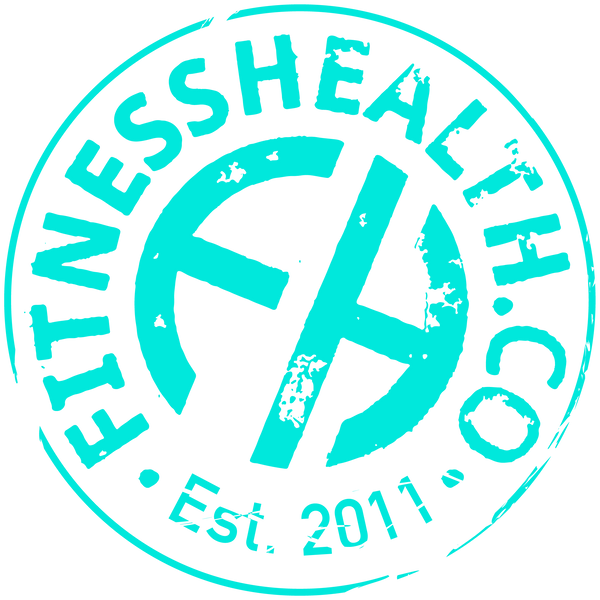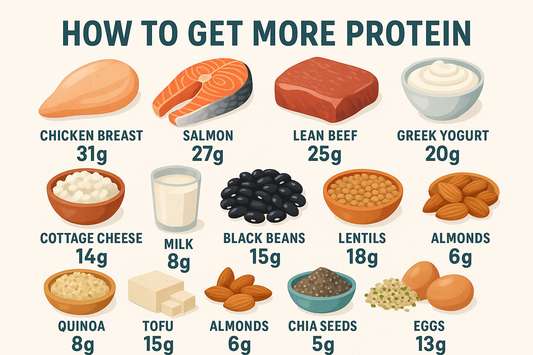Introduction to Building Muscle
Building muscle requires a combination of proper nutrition, consistent training, and adequate rest to support muscle growth and overall health. Building muscle involves more than just lifting weights; how you train and eat both play crucial roles in achieving optimal results.
A well-structured diet plan is essential for muscle building, focusing on high protein intake, complex carbohydrates, and healthy fats. The benefits of such a plan include improved metabolism and the development of more muscle mass, which can enhance performance and support long-term health.
Understanding the importance of dietary protein, amino acids, and other nutrients is crucial for effective muscle gain. The benefit of building muscle for the human body includes supporting metabolism, increasing strength, and promoting overall health.
Setting realistic expectations and tracking progress are key to staying motivated and achieving muscle building goals. Tracking progress also helps you see the benefits and gains from your efforts.
Dietary Requirements for Muscle Growth
To build muscle, it’s essential to consume enough protein to support muscle protein synthesis and prevent muscle breakdown. Consuming protein after resistance exercise is especially important to support muscle repair and growth.
Aim for 1.6-2.2 grams of protein per kilogram of body weight daily, spread across 3-5 main meals and 2-3 snacks, ensuring your protein sources provide all essential amino acids for optimal muscle building.
Include a variety of protein foods, such as whey protein, lean meats, fish, eggs, and plant-based proteins, in your diet, and pay attention to the protein content of different options. Dietary protein helps reduce protein breakdown and supports muscle mass maintenance.
Don’t forget to consume complex carbohydrates, such as brown rice, sweet potatoes, and whole grains, to provide energy for resistance exercise, workouts, and support muscle growth and recovery.
Monitor your daily calories and limit saturated fats as part of a balanced diet. Current evidence does not link dietary protein to cardiovascular disease or kidney problems in healthy individuals.
Make thoughtful food choices to support muscle mass and overall health.

Essential Foods for Muscle Building
Focus on whole foods, including lean meats, fish, eggs, dairy, fruits, vegetables, and whole grains, to provide essential nutrients for muscle growth. Choose protein foods with high protein content and all essential amino acids to maximize muscle building benefits.
Include healthy fats, such as nuts, seeds, avocados, and olive oil, in your diet to support hormone production and overall health. Healthy snack options, such as Greek yogurt with banana or cottage cheese with fruit, are great examples that support muscle building.
Eat protein-rich foods, such as Greek yogurt, cottage cheese, and lean meats, to support muscle protein synthesis and help you achieve muscle gains.
Don’t neglect other essential nutrients, such as fiber, vitamins, and minerals, which are crucial for overall health and muscle function. Making the right food choices leads to gains in muscle mass and strength.
Complex Carbohydrates and Muscle Growth
Complex carbohydrates are a cornerstone of any effective muscle building diet, providing the sustained energy your body needs for resistance training and muscle growth. Foods like brown rice, sweet potatoes, and whole grains are excellent sources of complex carbohydrates that help fuel your workouts and promote muscle hypertrophy. These carbohydrates replenish glycogen stores in your muscles, which is essential for high-intensity exercise and optimal recovery. In addition to supporting energy levels, complex carbohydrates are rich in fiber, which aids healthy digestion and helps you feel fuller for longer. To maximize muscle growth and recovery, aim to consume 2-3 grams of complex carbohydrates per kilogram of body weight each day. Including a variety of these foods in your meal plan will ensure your muscles have the energy they need to grow and recover after every training session.

Healthy Fats and Hormone Production
Healthy fats play a vital role in muscle growth by supporting hormone production, particularly hormones like testosterone that are essential for muscle hypertrophy. Fatty acids found in foods such as olive oil, nuts, avocados, and fatty fish not only help regulate hormone levels but also reduce inflammation and promote faster recovery after exercise. Including healthy fats in your diet ensures your body has the building blocks it needs for muscle building and overall health. For optimal results, aim to include 0.5-1 gram of healthy fats per kilogram of body weight daily. By prioritizing these nutrient-rich foods, you’ll support both your muscle growth and your body’s ability to recover and adapt to your training.
Meal Planning for Muscle Gain
- Create meal plans that help you meet your daily calories and protein needs, taking into account your body weight, activity level, and muscle building goals for more muscle.
- Aim for 5-6 main meals and 2-3 snacks per day, spaced out every 2-3 hours, including a healthy snack as part of your meal plan to keep your muscles fueled and support growth.
- Include a variety of protein foods with high protein content, along with complex carbohydrates and healthy fats in each meal to provide a balanced mix of nutrients.
- Consider consulting a registered dietitian or sports nutrition expert to create a personalized meal plan tailored to your needs.
Examples of meal plans or foods to eat for muscle building include grilled chicken with quinoa (noted for its protein content), Greek yogurt with banana as a healthy snack, and combining different protein foods throughout the day.

Customising Your Meal Plan
Creating a personalized meal plan is essential for achieving your muscle growth goals and maintaining overall health. A registered dietitian can help you design a meal plan that takes into account your body weight, activity level, and dietary preferences, ensuring you get the right balance of protein, complex carbohydrates, and healthy fats. For example, someone weighing 150 pounds might aim for 170 grams of protein, 200 grams of complex carbohydrates, and 70 grams of healthy fats each day. This balanced approach provides your body with the essential nutrients it needs to build muscle, recover from workouts, and support overall health. Customizing your meal plan not only helps you reach your muscle building goals but also makes it easier to stick to healthy eating habits long-term.
Snacking for Muscle Growth
- Choose a healthy snack, such as Greek yogurt with banana, edamame, sunflower seeds, or soy protein powder. These are examples of protein foods you can eat to support muscle growth.
- Aim for snacks with high protein content and balanced carbohydrate content, such as apple slices with almond butter or Greek yogurt with berries. These options provide both protein and carbohydrates to fuel your workouts and recovery.
- Select food that is nutrient-dense and supports your muscle-building goals. The right food choices for snacks can make a significant difference in your progress.
- Consuming protein after workouts is essential for muscle gains. Consider a post-workout snack, such as a protein shake or banana with peanut butter, to support muscle recovery and growth.

Increasing Calorie Intake
- To build muscle, you need to be in a calorie surplus, meaning you consume more daily calories than you burn. Tracking your daily calories and choosing the right food is essential to support muscle gains.
- Aim for an additional 250-500 calories above your maintenance level to support muscle growth, depending on your individual needs and activity level. Using meal plans can help structure your increased calorie intake and ensure you eat a balanced variety of foods.
- Focus on increasing your protein intake by choosing protein foods with high protein content, such as lean meats, dairy, legumes, and plant-based options like tofu and quinoa. Eat a mix of these protein foods, along with complex carbohydrates and healthy fats, to provide the necessary energy for muscle growth.
- Monitor your progress and adjust your calorie intake as needed to ensure you’re meeting your muscle building goals. Increasing muscle mass boosts your metabolism, which helps you burn more calories and achieve greater gains over time.
Staying Hydrated and Recovering
-
Staying hydrated is essential for muscle growth and recovery, as it helps to transport nutrients and oxygen to your muscles.
-
Aim for at least 8-10 glasses of water per day, and consider increasing your intake based on your individual needs and activity level.
-
Include electrolyte-rich foods, such as bananas and avocados, in your diet to help replenish lost electrolytes and support muscle recovery.
-
Consider having a post-workout shake or meal that includes electrolytes, such as coconut water or a sports drink, to support muscle recovery and hydration.

Avoiding Common Mistakes
To maximise muscle growth and support overall health, it’s important to avoid common mistakes that can hinder your progress. One of the biggest pitfalls is not consuming enough protein per kilogram of body weight, which is essential for muscle repair and growth. Relying too much on supplements instead of whole foods can also limit your intake of other important nutrients found in natural foods. Additionally, neglecting hydration and not getting enough sleep can slow down recovery and muscle development. Focus on meeting your protein needs with a variety of whole foods, stay well-hydrated, and prioritize quality sleep to ensure your body has everything it needs for muscle growth and recovery.
Seeking Professional Help
Achieving your muscle building and overall health goals can be much easier with the guidance of a registered dietitian or other qualified healthcare professional. These experts can help you develop a personalized meal plan, address any nutritional deficiencies, and provide ongoing support and accountability. Organizations like the International Society of Sports Nutrition and the Academy of Nutrition and Dietetics are excellent resources for finding qualified professionals who specialize in sports nutrition and muscle growth. By seeking professional help, you’ll have access to the latest evidence-based advice and a support system to keep you motivated and on track with your training and nutrition.
Monitoring Progress and Staying Motivated
- Monitor your progress regularly, taking body weight, body fat, and muscle measurements to track your muscle growth.
- Stay motivated by setting realistic goals and rewarding yourself for reaching milestones.
- Consider having a workout buddy or joining a fitness community to help stay motivated and accountable.
- Don’t forget to celebrate your progress and accomplishments, no matter how small they may seem.
Setting Realistic Expectations
- Set realistic expectations for your muscle building goals, taking into account your body weight, activity level, and individual needs.
- Don’t expect to build muscle overnight, as it takes time, patience, and consistency.
- Consider having a long-term approach to muscle building, and don’t get discouraged by setbacks or plateaus.
- Stay motivated by celebrating small victories and accomplishments, and don’t be afraid to adjust your goals as needed.
Tracking Progress and Adjusting
- Track your progress regularly, taking body weight, body fat, and muscle measurements to monitor your muscle growth.
- Adjust your meal plan and training program as needed to ensure you’re meeting your muscle building goals.
- Consider having a flexible approach to nutrition and training, and don’t be afraid to make changes as needed.
- Stay motivated by celebrating small victories and accomplishments, and don’t get discouraged by setbacks or plateaus.














